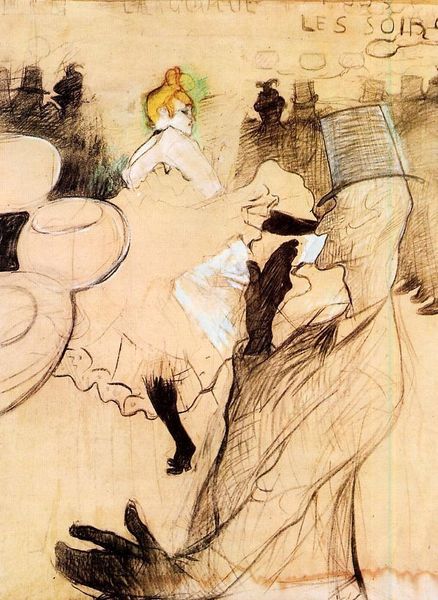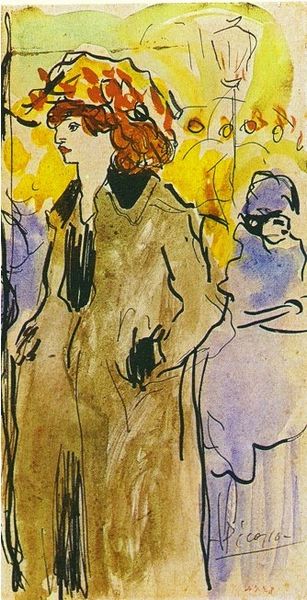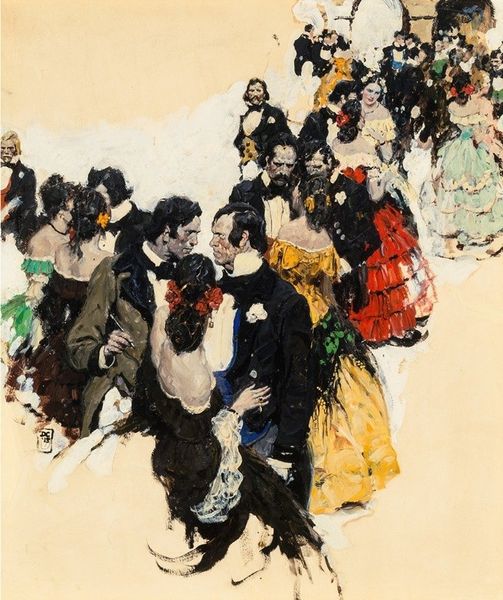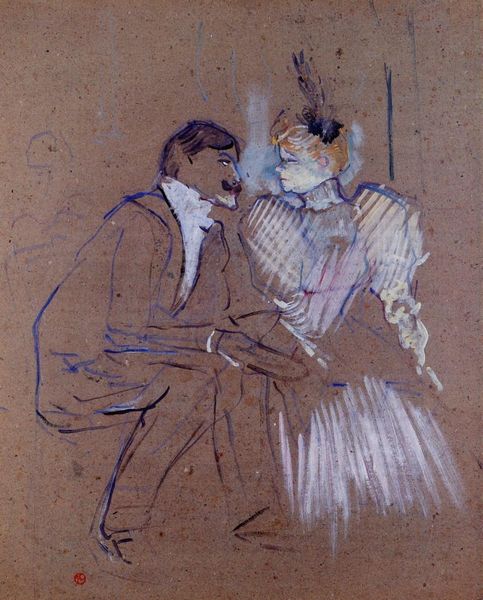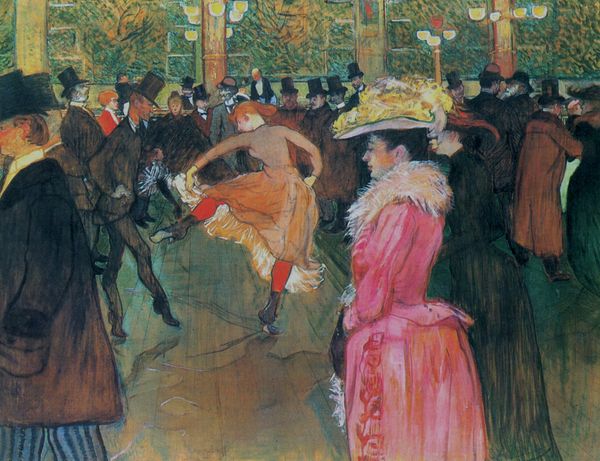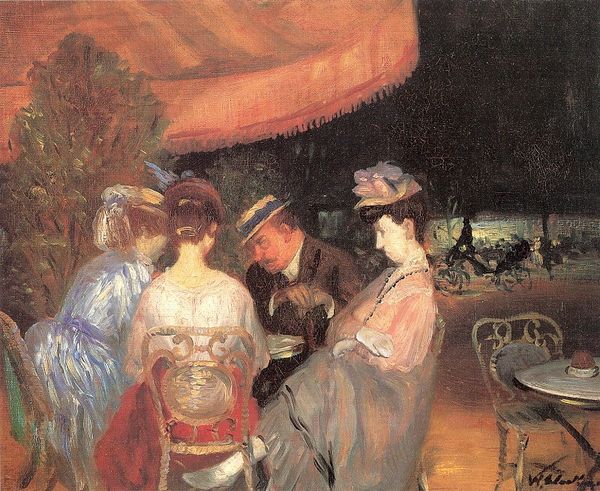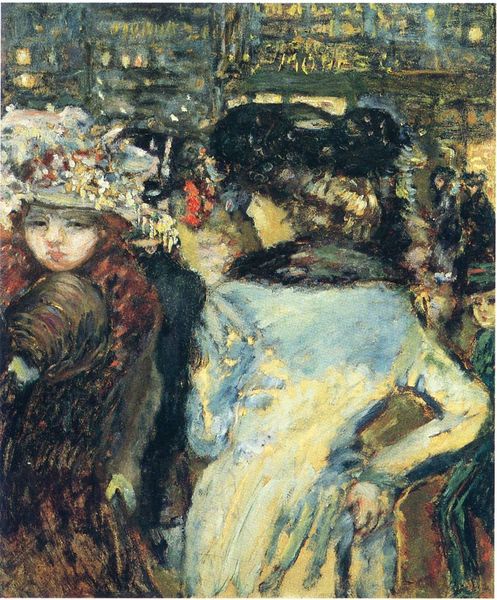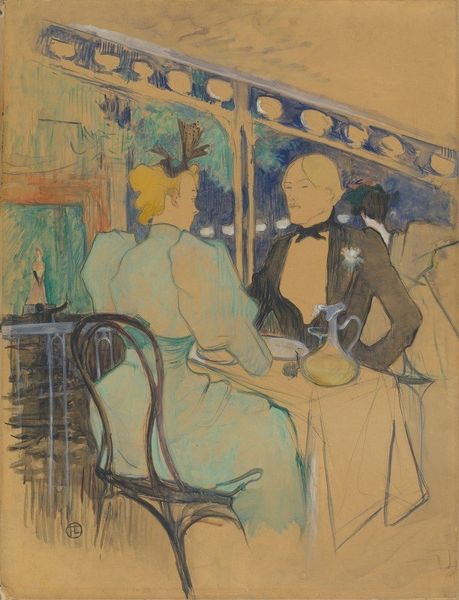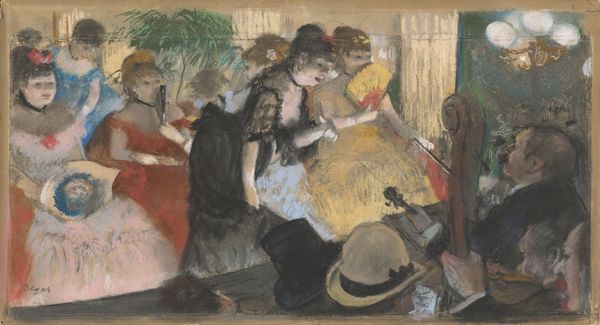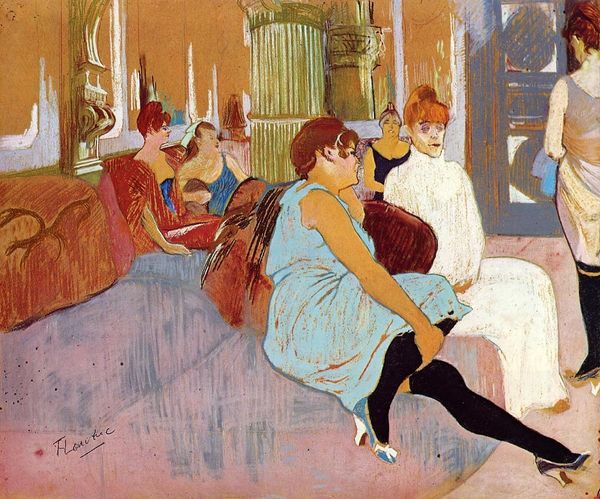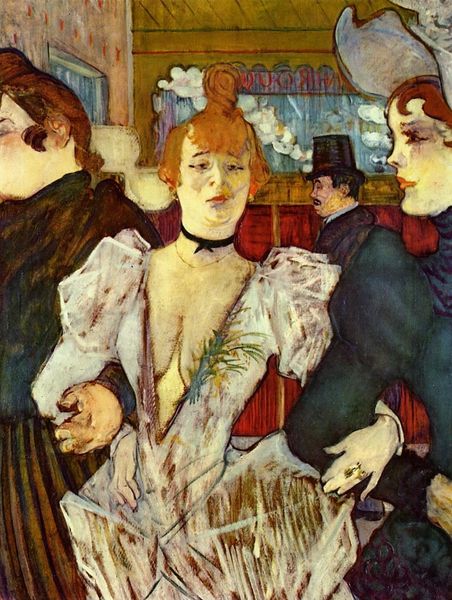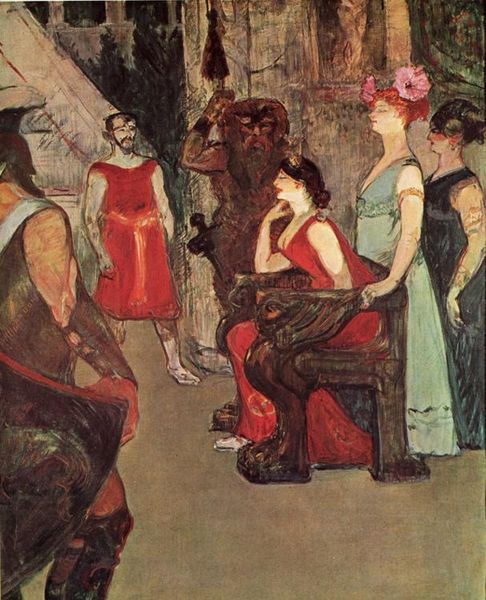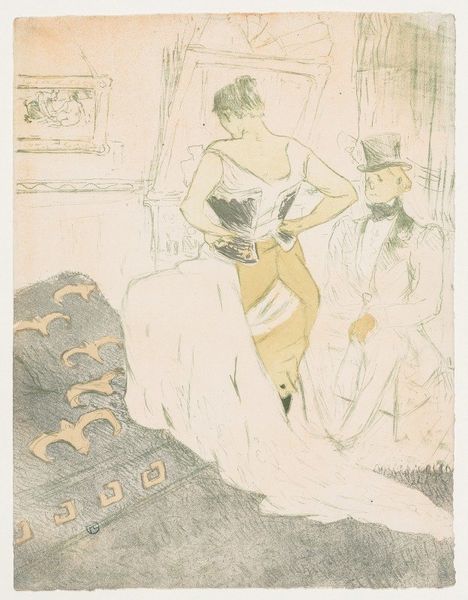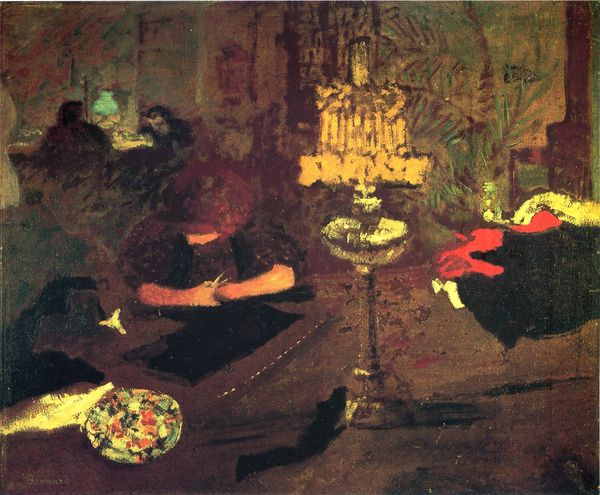
painting, oil-paint
#
portrait
#
narrative-art
#
painting
#
impressionist painting style
#
oil-paint
#
painting art
#
post-impressionism
Copyright: Public domain
Henri de Toulouse-Lautrec rendered "At the Opera Ball" with oil on cardboard, capturing a scene of masked revelry in Belle Époque Paris. The black masks worn by the figures evoke a sense of anonymity and hidden identities, harking back to the carnivals of Venice, where masks allowed a temporary suspension of social norms. Consider the mask not just as a disguise, but as a symbol of transformation and the subconscious. In ancient rituals, masks were worn to connect with the spiritual world, embodying deities or spirits. Think of the masks in commedia dell'arte, each representing stock characters with exaggerated traits. The mask conceals, but it also reveals, allowing a glimpse into the hidden aspects of human nature. This oscillation between visibility and concealment taps into a primal fascination. It triggers our curiosity and invites us to project our own desires and fears onto the masked figures. Like a dream, it speaks to us on a deeper, more intuitive level, resonating with our collective unconscious. The masks, in this context, serve as a potent symbol, inviting us to ponder the complexities of human identity and the allure of the hidden self.
Comments
No comments
Be the first to comment and join the conversation on the ultimate creative platform.
